Classical German Philosophy
“Classical German Philosophy” is a movement of idealist philosophers that flowered in the late 18th and early 19th century which created the philosophical foundations for Marxism. Each made a unique contribution.
Please mail all questions, suggestions, and additions to Andy Blunden.

Immanuel Kant (1724-1804) Kant “taught philosophy to speak German,” reacting to the scepticism of David Hume, which had brought the period of British Empiricism to an impasse, on one side, and the Dogmatism of the French Materialists, on the other side, Kant developed a Critical Philosophy whose rigour and clarity stands to this day. Figures such as Jürgen Habermas, Noam Chomsky and Jean Piaget are unabashed Kantians today. Kant was the purest expression of Enlightenment Reason and Universalism. |
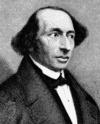
Friedrich Jacobi (1743-1819) Jacobi, German Pietist philosopher, criticised Spinoza.. |
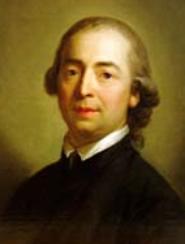
Johann Gottfried Herder (1744-1803) Herder was a Pantheist, Romantic philosopher who opposed Kant’s universalism and rationalism. Herder argued against Universalism, claiming that every people and every person had their own character. He also rehabilitated Spinoza, but criticized Spinoza's mechanical conception of Nature, arguing that God/Nature was active and included opposing forces striving against one another. Herder first explained the origin of language, which he saw as the substance of thought, and is the founder of cultural anthropology and hermeneutics. |

Johann Wolfgang von Goethe (1749-1832) Goethe was a famed poet before Kant had made his name with “Critique of Pure Reason,” and dominated the education of German-speaking people well into the 20th century. Not just a poet, he was a natural scientist and Pantheist and friend of Herder, and popularised ideas of development and the holist understanding of all processes. He was a life-long opponent of abstract empiricism (or positivism) and promoted the idea of Gestalt. |
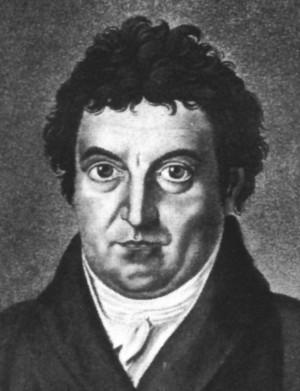
Johann Gottlieb Fichte (1762-1814) Remembered as a “subjective idealist,” Fichte built up and understanding of society through his conception of the “I”. His concept of Activity as a union of Subject and Object was a vital step in overcoming Kant's dualism. He also originated the idea of Recognition as the key to attainment of mediated self-determination and Freedom. Fichte was a revolutionary-minded supporter of the Jacobins in France. |
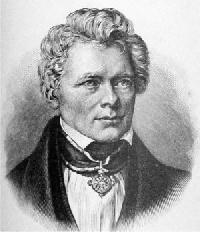
Friedrich Schelling (1775-1854) A close friend of Hegel in his youth, Schelling developed an “objective idealist” “nature-philosophy” in his youth, and assisted Hegel in developing the dialectical structure of his philosophy. In his later years, however, Schelling went over to a Philosophy of Revelation, which Marx and Engels took to be a stimulus for the development of reactionary currents in philosophy after the suppression of Hegelianism. |
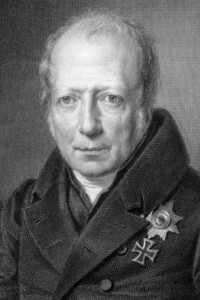
Wilhelm von Humboldt (1767-1835) Founder of modern linguistics and the view of the human condition as resting chiefly on language-use. |
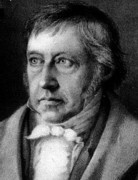
G. W. F. Hegel (1770-1831) Hegel was the pinnacle of Classical German Philosophy. He drew from Herder and Goethe to develop an encyclopaedic system which saw the world as the product of thought, but thought as an objective Spirit, manifested in human Activity. Hegel is the main source of Marx’s philosophical ideas, as Hegel had sublated the entire history of philosophy up to his time. |
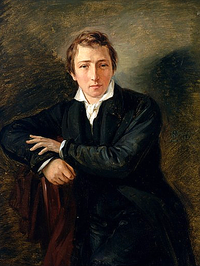
Heinrich Heine (1800-1853) German poet and revolutionary democrat, friend of Karl Marx, first to recognise the underlying revolutionary character of classical German Philosophy. Lived most of his life in exile in Paris. |
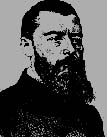
Ludwig Feuerbach (1804-1872) Feuerbach was the first of Hegel's young followers to make a materialist critique of Hegel in his “Essence of Christianity,” and with this, Feuerbach marked the end of Classical German Philosophy. But Feuerbach went too far in abandoning the Hegelian dialectic, seeing human beings as simply natural beings, rather than being products of their own culture. Feuerbach was the main influence on Marx in his break from Hegel. |
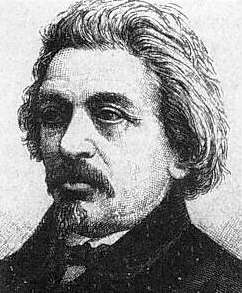
Moses Hess (1812-1875) Hess was a follower of Fichte and an admirer of Babeuf who developed an ultra-Left Communism and worked with Marx and Engels in their early days. It was Hess who introduced Marx to the idea of Activity as a means of appropriating Hegel's philosophy. |